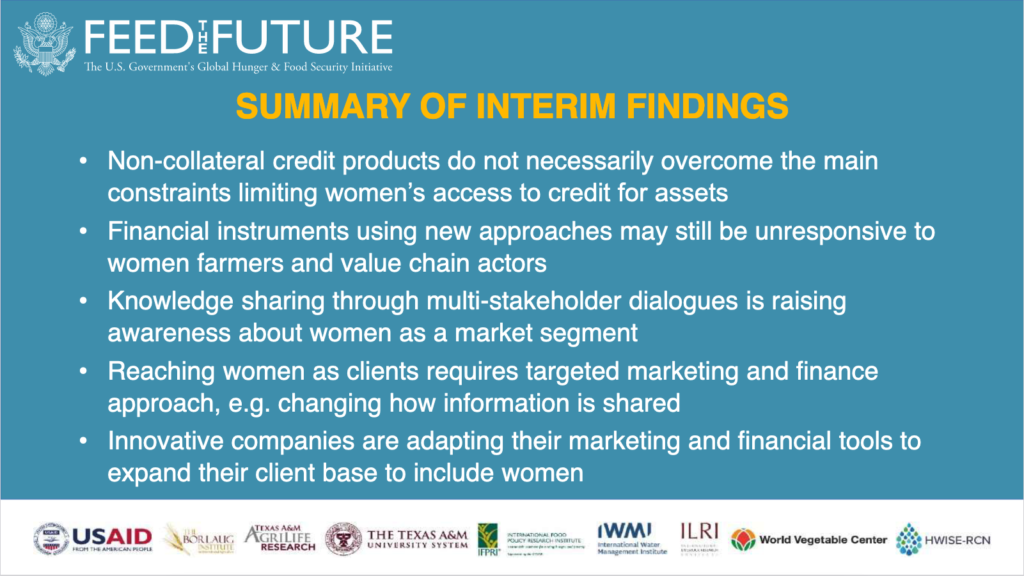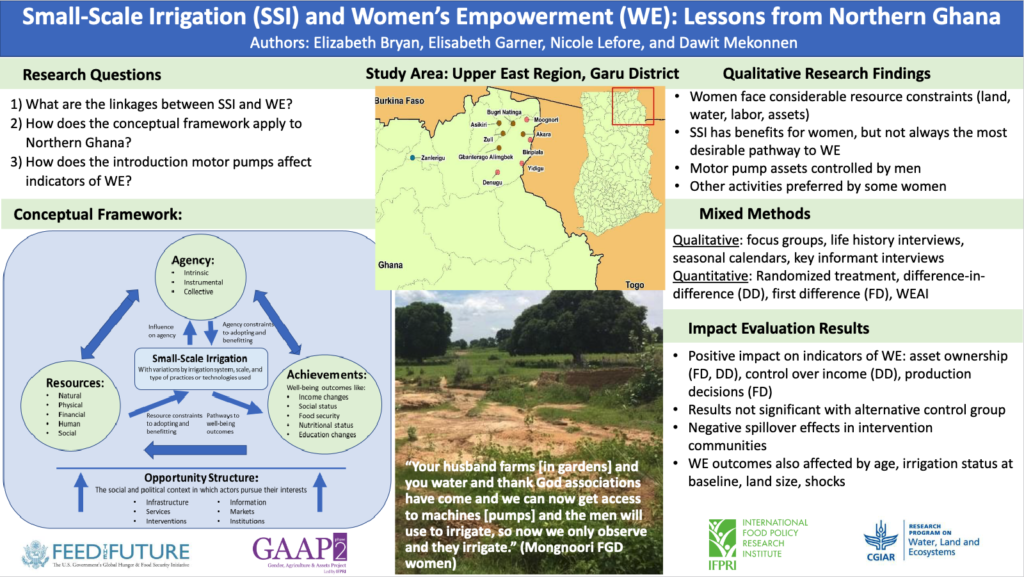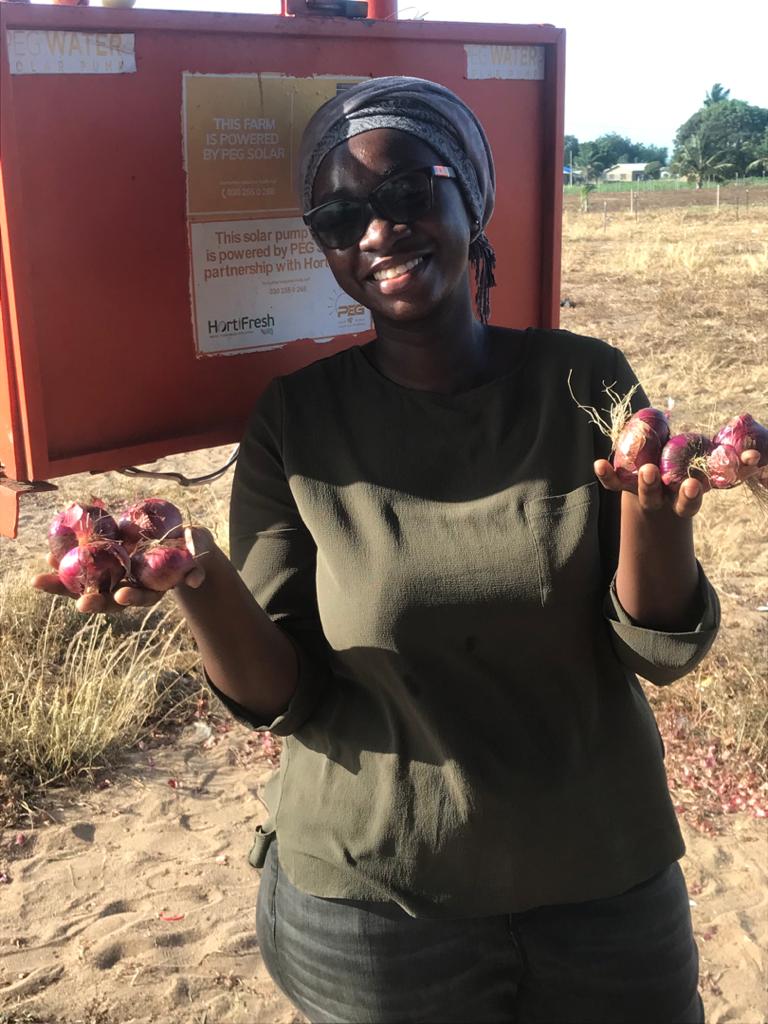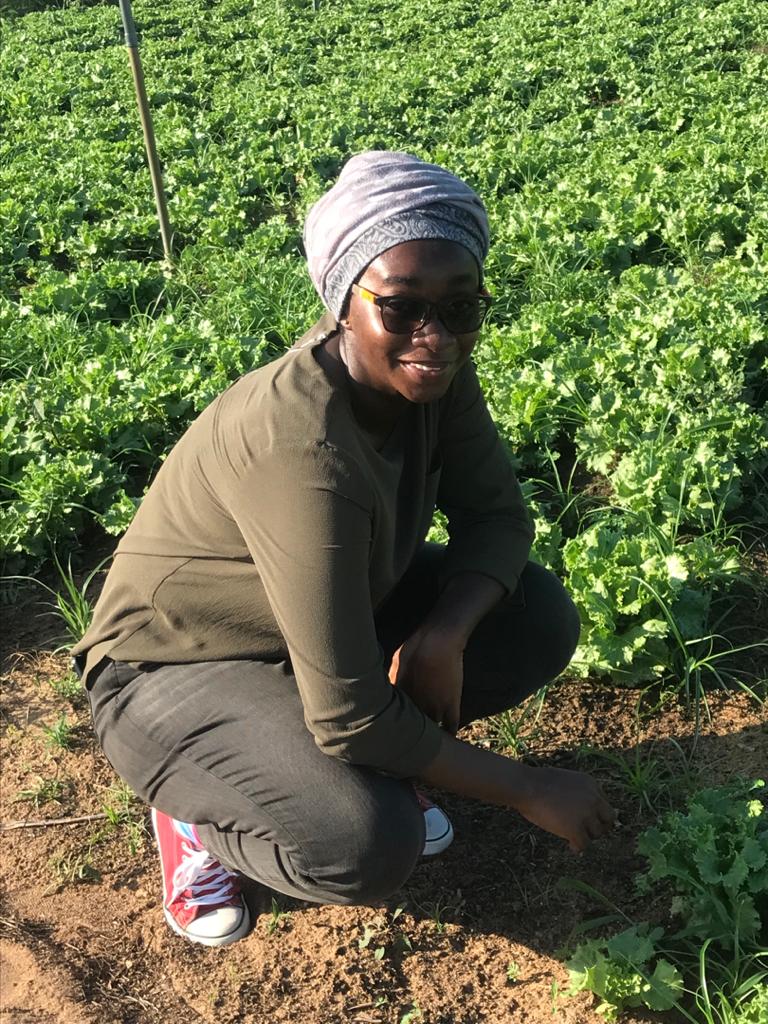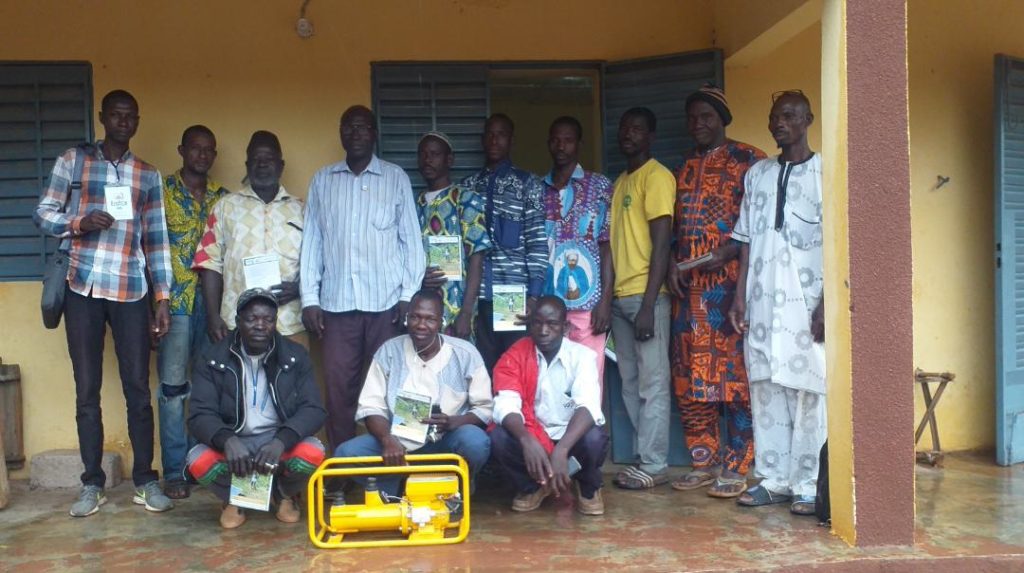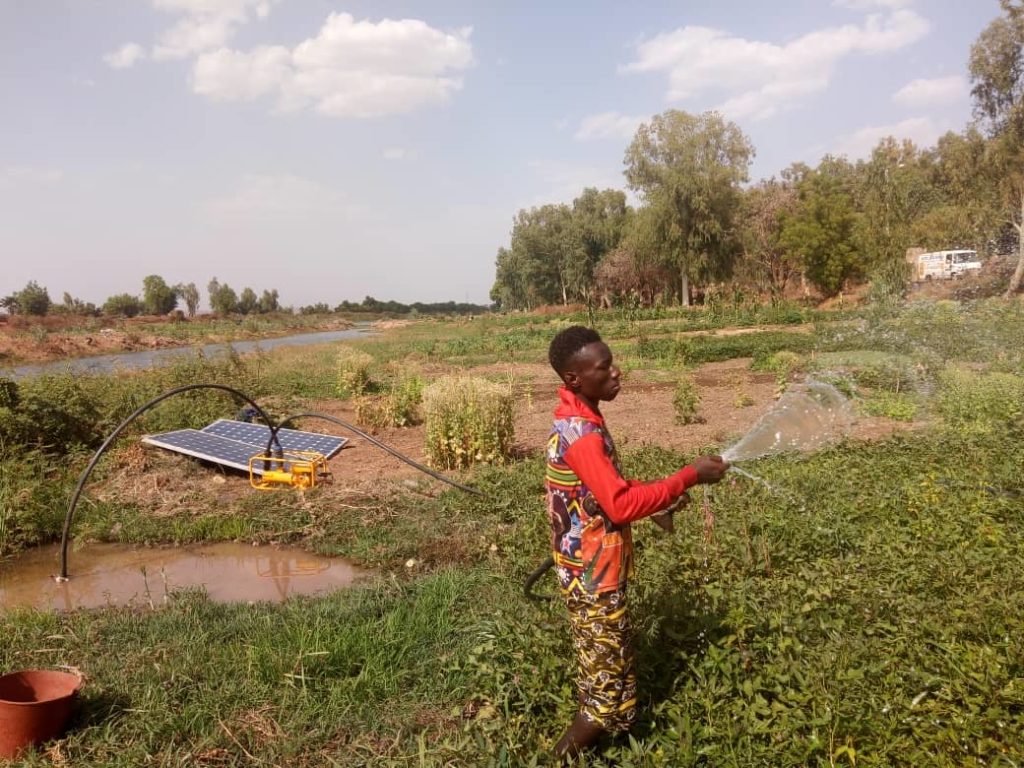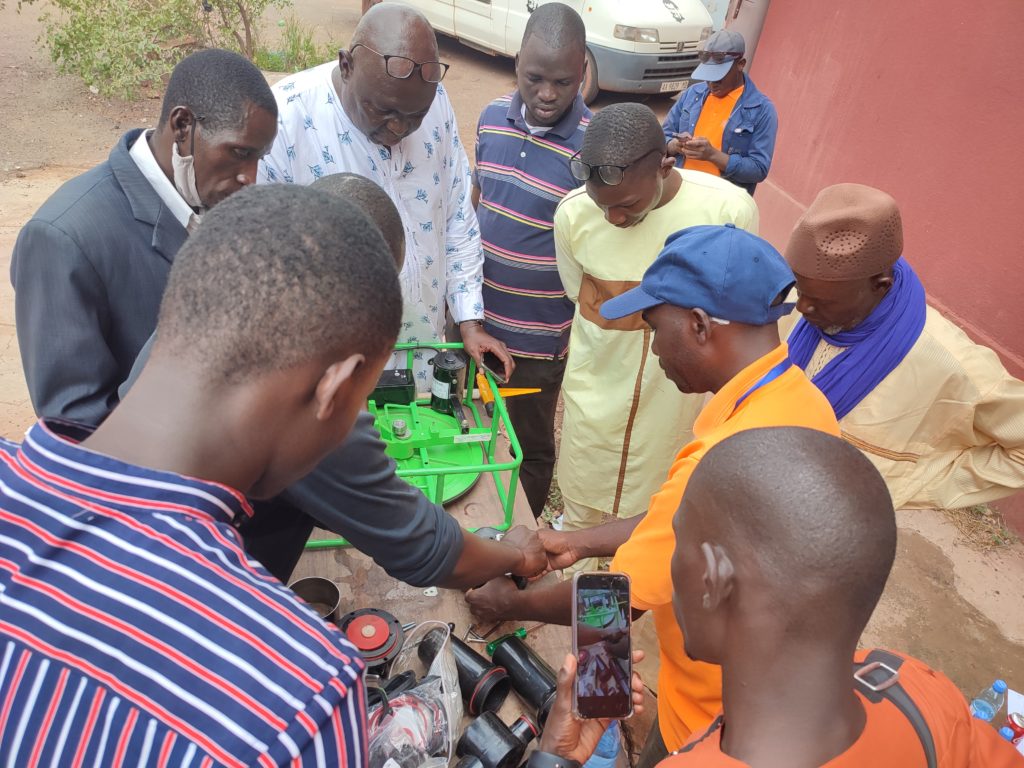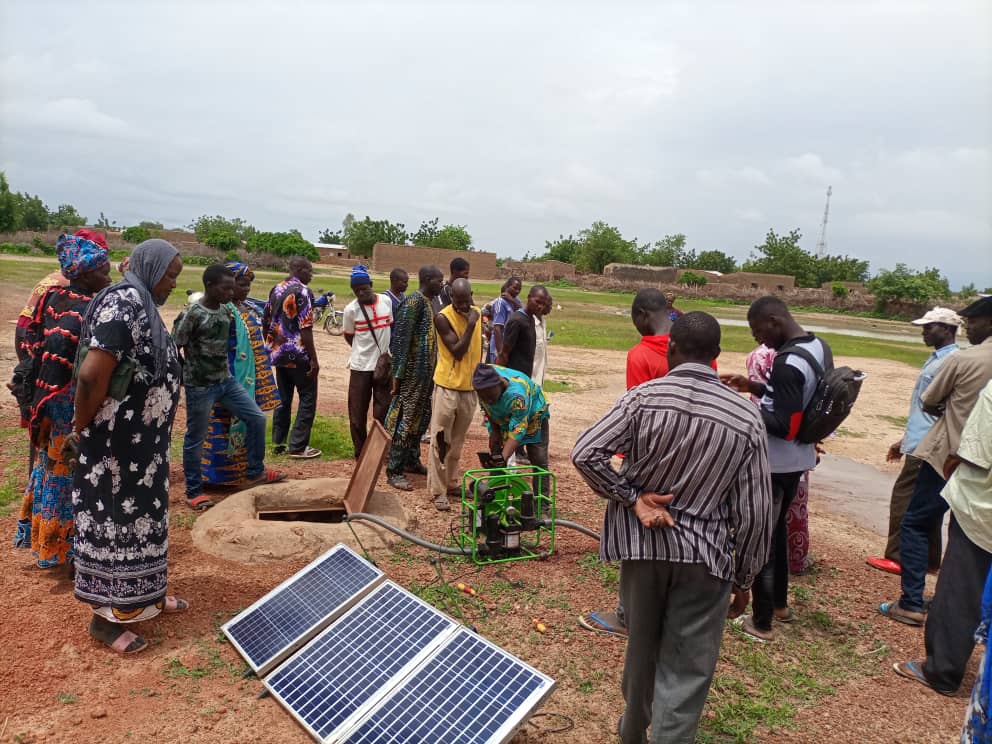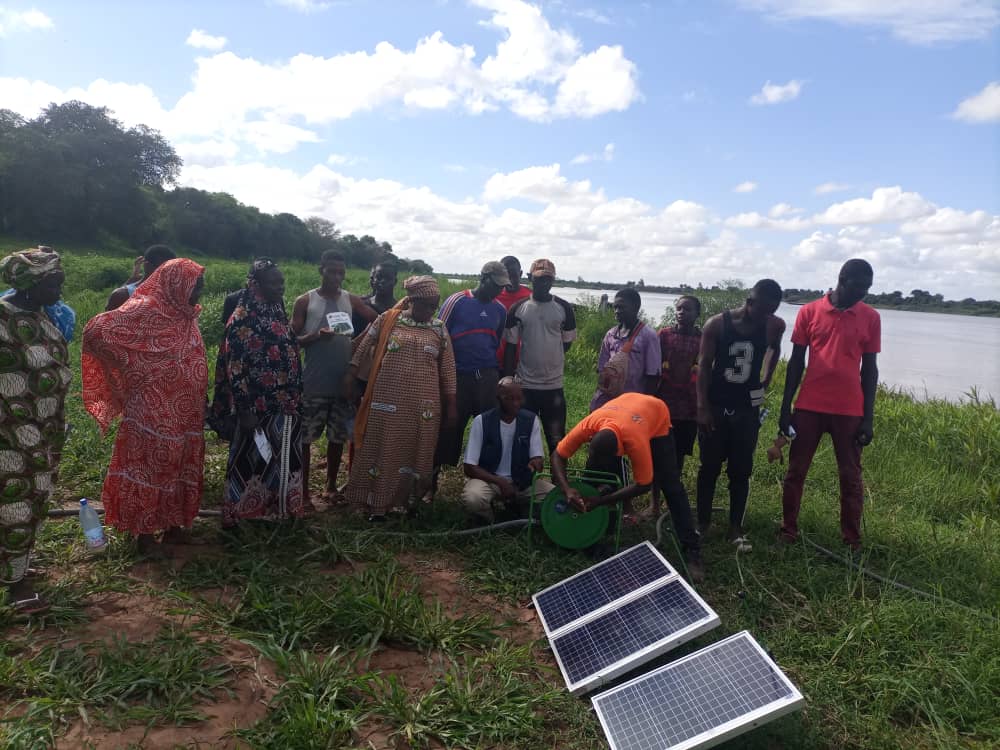by Nicole Lefore, Director of Feed the Future Innovation Lab for Small Scale Irrigation (ILSSI)
During a recent field visit in Ghana, I experienced firsthand how farmers are willing to invest in solar-powered irrigation and use it to experiment, diversify, and adapt to climate change. Talking with these frontrunner farmers can teach us important lessons about how to enable even more smallholders, through better access to credit and stronger value chains, to benefit from small scale irrigation.
For the past few years, we have seen solar-powered irrigation emerge as a promising, climate-smart solution for smallholder farmers to increase their incomes and improve their livelihoods and nutrition. However, for most farmers, investing in pumps and photovoltaic panels still represents a significant risk. So far, this has been hampering large-scale uptake of the technology.
The Feed the Future Innovation Lab for Small Scale Irrigation (ILSSI) is working to find different ways to enable more smallholders to make the investment, without putting their livelihoods at risk. For example in Ghana, we are partnering with PEG Africa, a private sector provider of solar-powered pumps, to find ways to reach farmers ‘at the bottom of the pyramid’. This year, PEG Africa’s game-changing asset-based financing solution has enabled several dozen farmers to purchase solar-powered pumps on credit, without the usual collateral or credit history required for a loan.
During my recent visit to Ghana, I discovered how these investments are prompting farmers to push the boundaries of diversification and to explore how they can make the best return and gain the most benefit at farm level. The solar-powered pumps are changing farmers’ practices, profitability, and plans for the future.
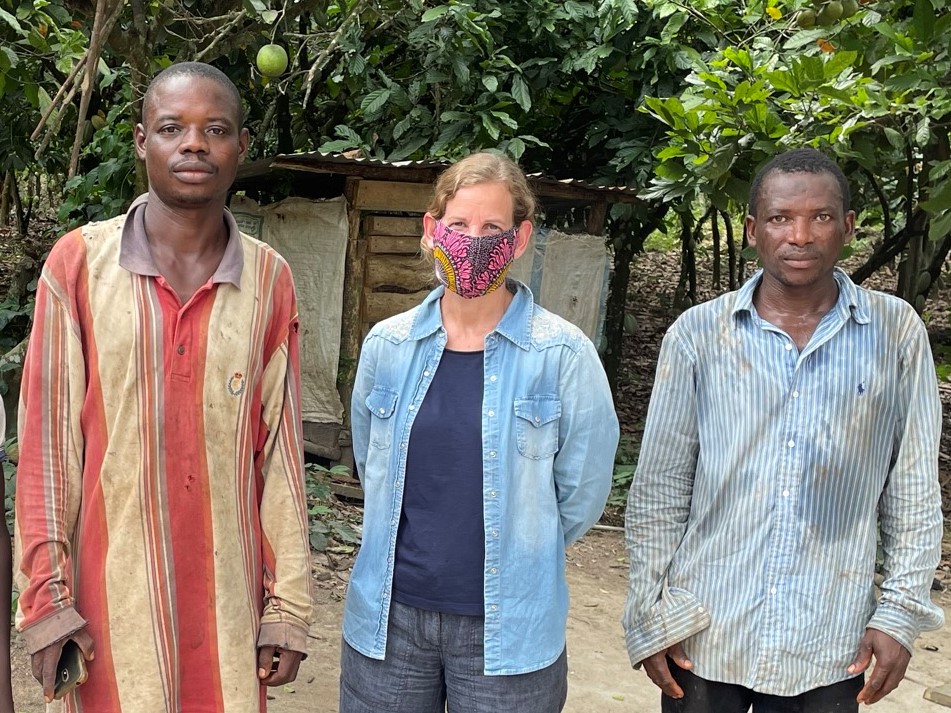
Irrigation allows farmers to break new ground in cocoa production
When launching our partnership with PEG Africa, we had expected that most farmers would be interested in using the solar-powered pumps for horticulture. Surprisingly, we have found that some farmers are diversifying far beyond this area, including using pumps for other purposes than irrigation and even breaking new ground by introducing irrigation in cocoa cultivation.
Cocoa is central to Ghana’s economy, engaging around 600,000 farmers directly. However, aging farms and climate change are creating challenges. While old trees need to be replaced, around 40 percent of the seedlings die due to lack of rainfall. Low rainfall is also reducing production across all three cocoa-producing seasons.
At the same time, farm income from cocoa remains extremely low, making it difficult for farmers to replant farms and adapt to the changing climate conditions. In short, changing rainfall patterns are making irrigation an urgently needed investment.
When visiting farmers near Offinso recently, I was happy to see that several of them are using their new solar-powered pumps to rehabilitate their cocoa farms. The pumps allow them to regularly water their cocoa seedlings to prevent loss and to inter-crop vegetables and staples such as plantain, while the newly planted seedlings come into production.
One cocoa farmer said that he had previously walked five kilometers to reach a stream for water, but now the solar-powered pump is near his house, enabling easy access to water for multiple uses and cutting down on labor. Another smallholder cocoa farmer told me that he is using the pump to expand into ginger and turmeric production.
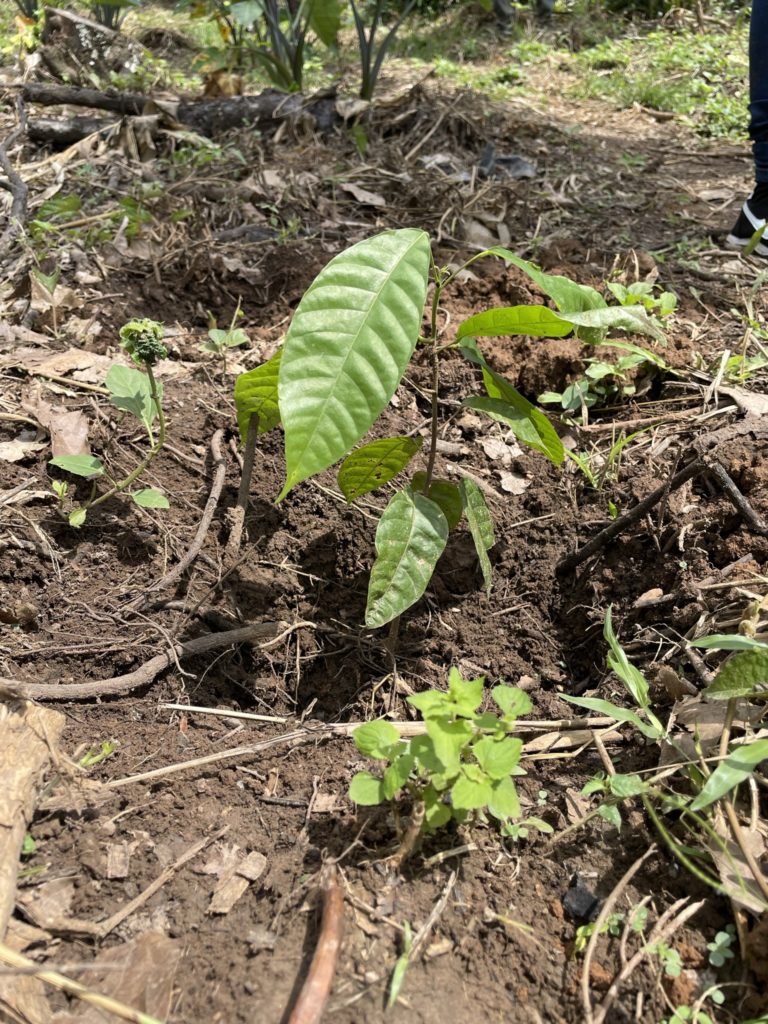
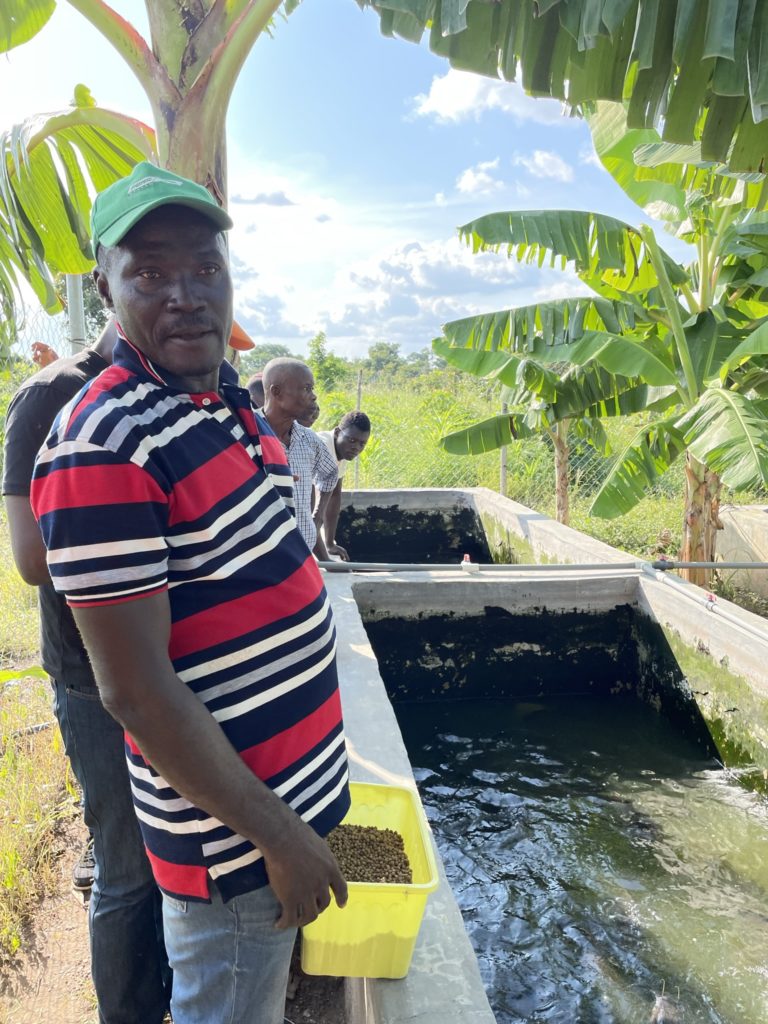
Learning from these farmers will help inform the work we are doing with PEG Africa – and in collaboration with one of Ghana’s largest cocoa-buying companies – allowing us to better understand how to make solar irrigation accessible for cocoa farmers to adapt to climate change and remain viable.
The way the farmers in Offinso have begun to innovate and diversify their production can be expected to enable them to continue cocoa production through farm rehabilitation, while also producing horticulture and specialty produce for increased income. These farmers could be providing one of the first clues that smallholders really can afford solar-powered irrigation, adapt to climate change, and still be profitable.
New technologies, better business ventures
Another small farm business I visited in the Eastern Region, the Growing Gold Farm, is combining solar-powered pumps with other technologies and online platforms to maximize profit, allowing them to continue to reinvest in climate adaptation and environmental health.
The Growing Gold Farm replaced hand watering vegetables and fruit on their two-acre farm with a solar-powered pump purchased from PEG Africa. The farm manager emphasized to me the cost savings made possible now that they no longer need to hire people to irrigate by hand and instead engage that labor for improved agronomy.
The farm increased its profitability and then reinvested in regenerative agriculture practices, including mulching and integrated pest management, as well as water management technologies, such as drip tubes.
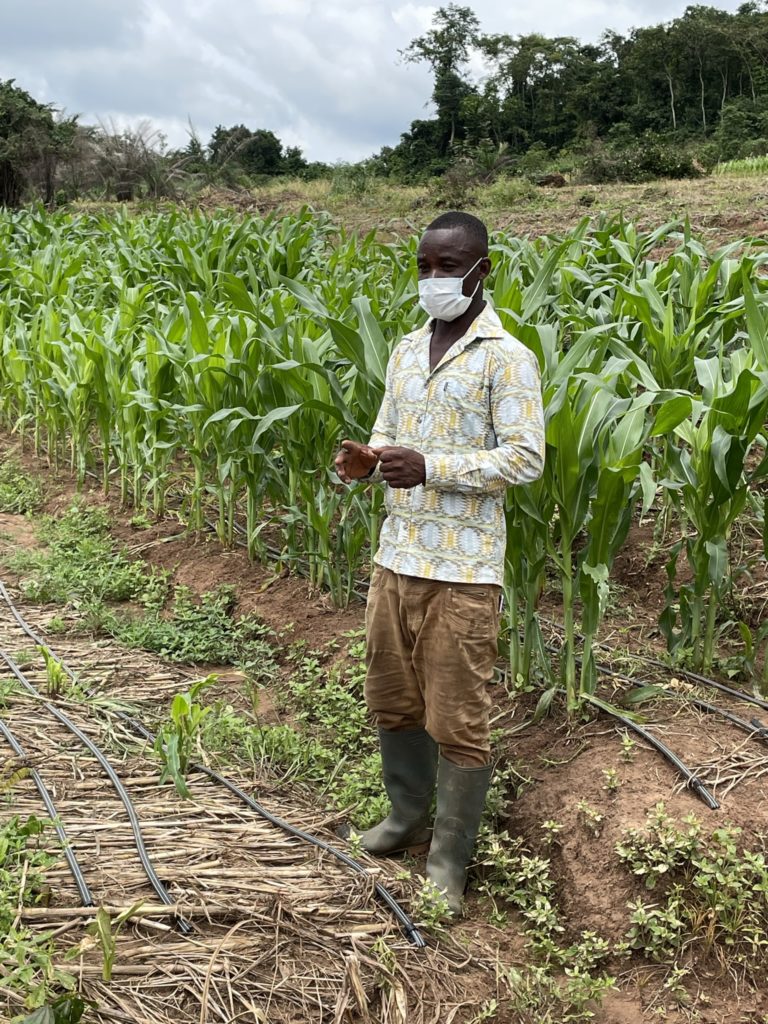
The farm records the amount of water used on different crops and observes the productivity and quality changes, using tools provided by another ILSSI partner, the International Water Management Institute.
One of the reasons for the profitability of the farm is that it sells produce directly to customers in the Greater Accra market, using Instagram for marketing and orders, and then delivers produce by Uber, both of which have helped to ensure better prices for their high-value produce. They have gained a following by ‘foodies’ in urban markets looking for high-quality, fresh produce, which has generated more social media attention.
The lesson here is that using multiple technologies and turning to online platforms and social media for direct marketing does have promise in emerging markets where urban households are getting further and further away from the farm. When we see a smallholder farmer jumping over the middleman, finding new marketing approaches, profits increase and enable investments in new technologies.
These two examples, the smallholders irrigating cocoa farms and the Growing Gold Farm, both show that smallholder farmers can successfully invest in solar irrigation – utilizing asset-based financing – and expand their benefits and returns through diversifying what they produce and how they engage the market.
We can learn from such cases, which help us better understand how farmers can afford to invest in irrigation through credit and through better linkages within different irrigated produce supply chains. For me, it was a reminder that farmers – including those on very small plots – are the ones who are willing to innovate, take risks, and experiment. Looking to farmers’ innovations will help us and our private sector partners devise better solutions for expanding small scale irrigation in Ghana and beyond.

